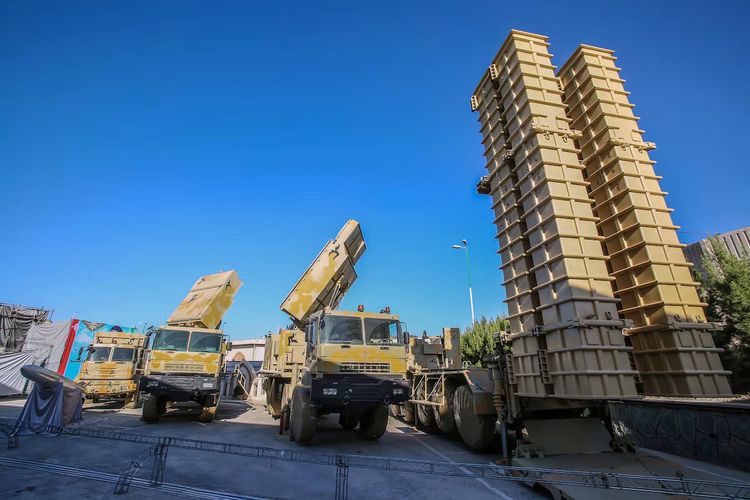Iran Claims to Replace Damaged Air Defense System After Israeli Attack, Emphasizes Readiness to Face Threats

The Shiro Copr - Iran announced that it has successfully replaced its damaged air defense system following the open conflict with Israel in June last year. This statement was made by Mahmoud Mousavi, Deputy Chief of Army Operations of Iran, as reported by the military news agency Defah Press on Sunday (20/7/2025) local time.
The armed conflict between the two countries peaked last month, when the Israeli Air Force successfully penetrated Iranian airspace and destroyed key air defense components. In an unprecedented escalation, Iran retaliated by launching a wave of missiles and drones into Israeli territory.
"Some of our air defense systems have indeed been damaged, and we cannot hide this. However, our colleagues have used domestic resources and replaced them with systems that were previously prepared and stored in appropriate locations to ensure the security of the airspace," Mousavi said, as quoted by Reuters on Monday (21/7/2025).
Before the war broke out, Iran had developed and operated its own long-range air defense system, Bavar-373, as well as relied on Russian systems, S-300. However, this latest report does not mention the procurement or import of foreign air defense systems in recent weeks.
In this context, Iran's statement also indicates that the country relies on its own military logistics and production to respond to post-conflict damages. This step also reflects Tehran's confidence in its defense industry capabilities, amid ongoing international pressure and sanctions.
As a note, military tension between the two countries is not new. Limited Israeli attacks on Iranian missile facilities last October had previously triggered Iranian show-of-force through military exercises featuring Russian-made air defense systems. This move was called an effort to restore Iranian military confidence after its industrial facilities were attacked.
However, the June attack incident revealed a larger and more open scale of conflict. Israel's air dominance was considered a significant blow to Iran, although it did not last long as Iran quickly demonstrated its internal military recovery capabilities.
Military observers assess that Iran's rapid response in replacing its defense system indicates strategic preparedness, as well as a political message that the country remains capable of safeguarding its air sovereignty without full reliance on foreign military alliances.
Nevertheless, Iran's success in replacing the damaged system has not fully answered the question about the effectiveness of its defense in facing future attacks, especially from a country with air power like Israel. In the increasingly complex regional dynamics, military tensions between the two countries are expected to continue.
With the still fragile and uncertain situation, Iran's move to replace this air defense system should be closely watched as part of its long-term strategy in the volatile Middle East region.
Comments
Post a Comment